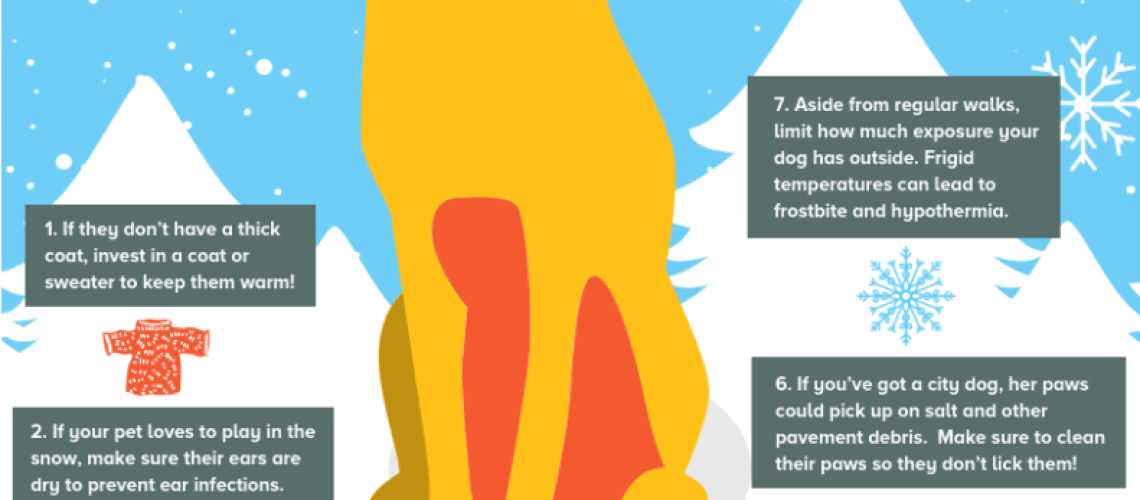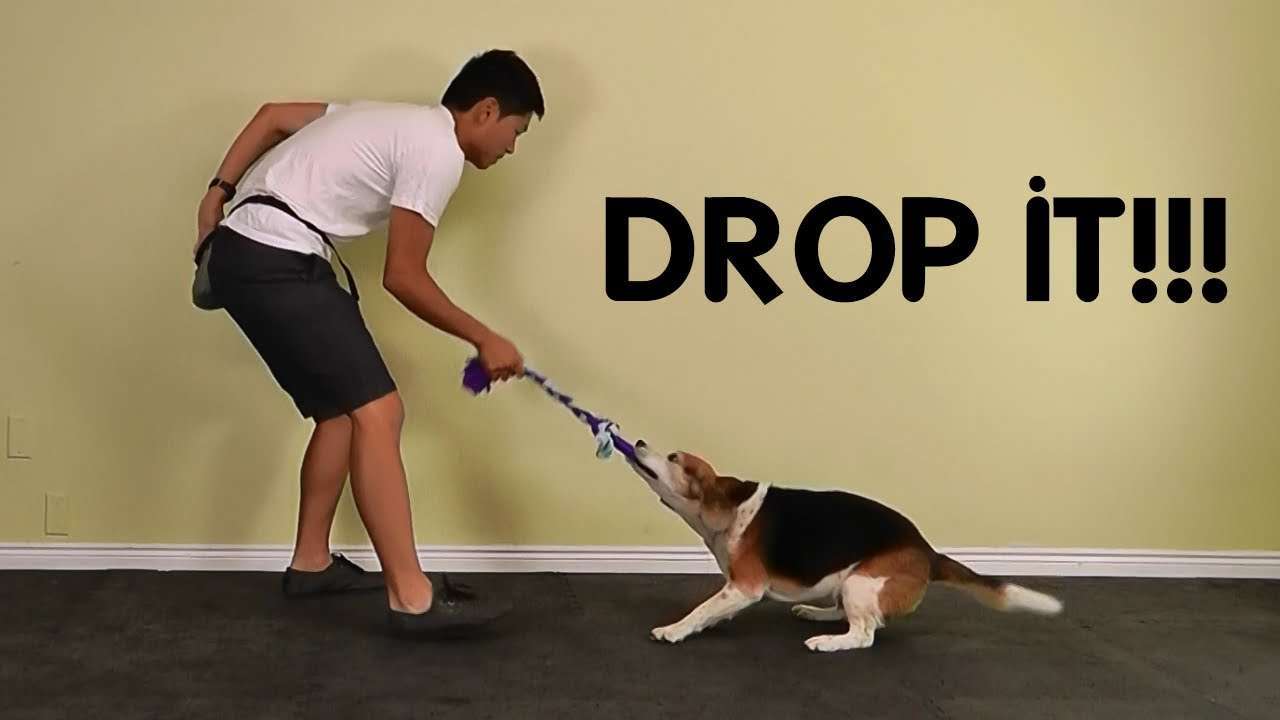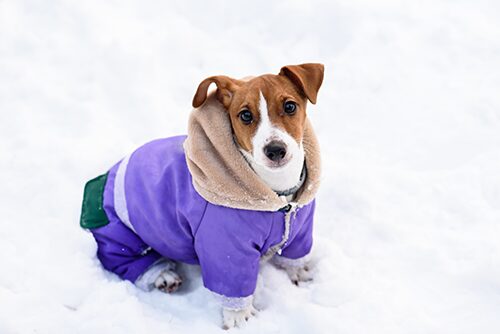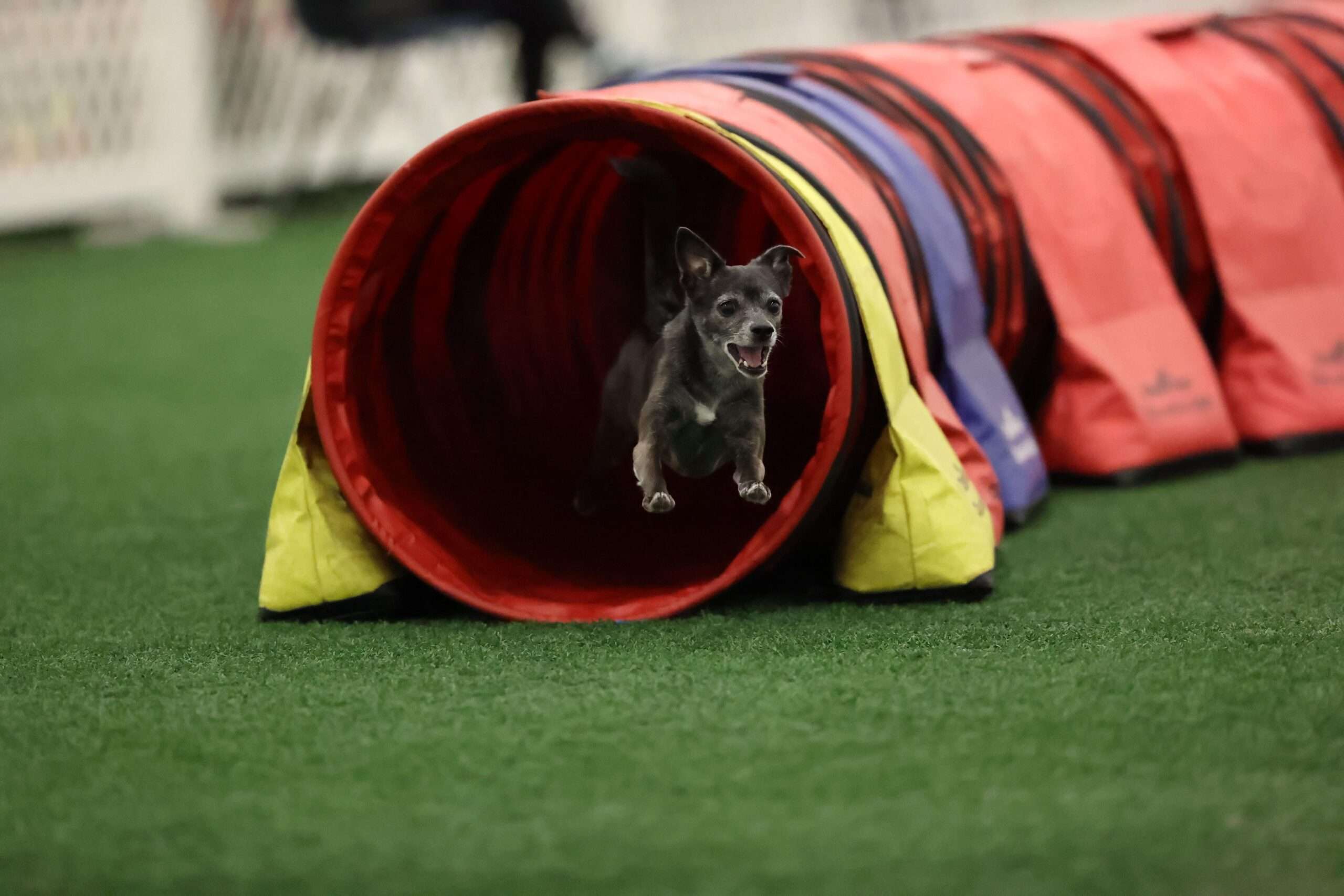Key Takeaways:
-
1. Indoor games and puzzles can provide mental stimulation for your dog during the winter months when outdoor activities may be limited.
2. Regular walks or hikes in colder weather can help keep your dog active and prevent weight gain.
3. Engaging in interactive play sessions with your dog, such as tug-of-war or fetch, can help burn off energy indoors.
4. Consider enrolling your dog in a winter-friendly exercise class, such as indoor agility or obedience training.
5. Provide your dog with appropriate winter gear, such as a coat or booties, to keep them comfortable during outdoor activities in colder temperatures.
Are you worried about your furry friend getting bored and sluggish during the winter months? Well, fret no more! We've got just the solution to keep your beloved pup active and happy all season long. In this article, we'll reveal 6 simple yet effective ways to ensure your dog stays active and engaged, even when the temperature drops. Whether it's snowy or chilly outside, these tips will help you create a winter routine that keeps tails wagging and energy levels soaring. So, get ready to discover the secrets of keeping your four-legged companion entertained and fit throughout the winter season. Let's dive in!
Keeping Your Dog Active During Winter
Why is it important to keep your dog active in winter?
Winter can bring cold temperatures and inclement weather, which may make it tempting to keep your dog indoors all day. However, it's important to remember that dogs still need regular exercise, even during the colder months. Regular physical activity helps maintain a healthy weight, keeps muscles strong, and provides mental stimulation for your furry friend.
Additionally, keeping your dog active during winter can prevent behavioral issues that may arise from pent-up energy. Dogs that don't get enough exercise may become bored or restless, leading to destructive behaviors like chewing on furniture or excessive barking.
Indoor activities for dogs in cold weather
If the weather outside is too harsh for outdoor activities, there are plenty of fun indoor games and exercises you can do with your dog:
- Tug-of-war: Engage in a friendly game of tug-of-war using a rope toy or soft fabric toy. This helps strengthen your dog's jaw muscles and provides mental stimulation.
- Hide-and-seek: Hide treats or toys around the house and encourage your dog to find them. This game stimulates their sense of smell and keeps them mentally engaged.
- Obstacle course: Set up a mini obstacle course using household items like pillows, chairs, and tunnels. Guide your dog through the course, teaching them new commands and providing physical exercise.
Remember to always supervise indoor activities and ensure that the space is safe for both you and your dog. Clear any obstacles that could cause accidents or injuries.
The Importance of Keeping Your Dog Active in Winter
Physical and mental benefits of winter exercise for dogs
Regular exercise during winter is essential for your dog's physical and mental well-being. Here are some key benefits:
- Maintaining a healthy weight: Just like humans, dogs can gain weight during the winter months due to decreased activity levels. Regular exercise helps burn calories and prevents obesity, which can lead to various health issues.
- Strengthening muscles and joints: Physical activity keeps your dog's muscles strong and joints flexible, reducing the risk of injuries or arthritis.
- Mental stimulation: Dogs need mental stimulation to prevent boredom and destructive behaviors. Engaging in activities that challenge their minds, such as puzzle toys or training exercises, helps keep them mentally sharp.
By keeping your dog active during winter, you're not only ensuring their physical health but also promoting their overall happiness and well-being.
Outdoor Games and Exercises for Dogs in Winter
Safe outdoor activities for dogs in cold weather
If the weather permits, there are several outdoor games and exercises that you can enjoy with your dog during winter:
- Snowball fetch: Instead of using a regular tennis ball, use a brightly colored snowball to play fetch with your dog. This adds an extra element of fun to the game while enjoying the snowy surroundings.
- Trekking or hiking: Take your dog for a scenic hike or trek on a trail suitable for winter conditions. This provides both physical exercise and an opportunity for your dog to explore new scents and environments.
- Dog-friendly parks: Find a dog-friendly park that allows off-leash play and visit when the weather is suitable. This allows your dog to socialize with other dogs and burn off energy in a safe and controlled environment.
Always check the weather conditions before heading outdoors with your dog. Ensure that both you and your furry friend are dressed appropriately for the cold, and be mindful of any hazards like icy surfaces or extreme temperatures.
Precautions for Keeping Your Dog Safe and Active in Winter
Tips for keeping your dog safe during winter activities
While it's important to keep your dog active during winter, it's equally crucial to prioritize their safety. Here are some precautions to take:
- Dress appropriately: Invest in a well-fitting dog coat or sweater to keep your pup warm during outdoor activities. This is especially important for short-haired breeds or those sensitive to the cold.
- Protect paws: Apply paw balm or use booties to protect your dog's paws from ice, salt, and other harmful substances commonly found on winter roads and sidewalks.
- Schedule exercise wisely: Avoid exercising your dog during extreme weather conditions such as heavy snowfall, freezing rain, or strong winds. Opt for calmer days with milder temperatures.
Remember to consult with your veterinarian if you have any concerns about your dog's health or specific precautions you should take based on their breed or age.
The Benefits of Regular Exercise for Dogs in Colder Weather
Why regular exercise is beneficial for dogs in colder months
Regular exercise offers numerous benefits for dogs throughout the year, including the colder months. Here's why it's essential:
- Improved overall health: Exercise helps maintain a healthy weight, strengthens muscles and bones, and improves cardiovascular health in dogs. This leads to a longer and happier life.
- Enhanced mental well-being: Dogs thrive on routine and mental stimulation. Regular exercise provides an outlet for their energy, reduces anxiety, and promotes a sense of contentment.
- Bonding time with owners: Engaging in activities with your dog strengthens the bond between you. It creates shared experiences and allows for quality time spent together.
Even though the weather may be colder, it's important not to neglect your dog's exercise needs. With proper precautions and suitable activities, you can ensure that your furry friend stays active, healthy, and happy all year round.
The Benefits of Regular Exercise for Dogs in Colder Weather
1. Improved Physical Health
Regular exercise is just as important for dogs in colder weather as it is during warmer months. When dogs engage in physical activities, such as brisk walks or playing fetch, their muscles get stronger and their cardiovascular system becomes more efficient. This helps to maintain a healthy weight and reduces the risk of obesity, which can lead to various health problems like diabetes and joint issues. Additionally, exercise stimulates digestion and improves overall gut health in dogs.
Benefits:
- Stronger muscles
- Improved cardiovascular system
- Healthy weight maintenance
- Reduced risk of obesity
- Better digestion and gut health
2. Mental Stimulation
Exercise not only benefits a dog's physical health but also plays a crucial role in their mental well-being. Dogs are naturally curious creatures that thrive on mental stimulation. In colder weather, when outdoor activities may be limited, regular exercise provides an opportunity for dogs to explore new environments, encounter different scents, and engage with their surroundings. This mental stimulation helps prevent boredom and destructive behaviors caused by pent-up energy.
Benefits:
- Mental stimulation
- Exploration of new environments
- Exposure to different scents
- Engagement with surroundings
- Prevention of boredom and destructive behaviors
3. Bonding Time with Owners
Engaging in regular exercise with your dog during colder weather not only benefits them physically and mentally but also strengthens the bond between you and your furry companion. Taking your dog for walks or playing interactive games together creates shared experiences that enhance the emotional connection between you both. It provides an opportunity for quality time spent together, where you can communicate through non-verbal cues and build trust.
Benefits:
- Strengthened bond between owner and dog
- Shared experiences and memories
- Enhanced emotional connection
- Quality time spent together
- Improved communication and trust-building
By ensuring your dog gets regular exercise in colder weather, you are promoting their overall well-being, both physically and mentally. Remember to adjust the intensity and duration of the activities based on your dog's age, breed, and individual needs. So bundle up, grab a leash or a favorite toy, and enjoy the benefits of exercising with your furry friend in the chilly weather!
In conclusion, there are several fun and easy ways to keep your dog active during the winter months. By incorporating indoor games, regular walks, and interactive toys, you can ensure that your furry friend stays happy and healthy all season long.
How do I keep my dog mentally stimulated in the winter?
Offer your dog some puzzle toys to keep them mentally stimulated. It is essential to provide both physical and cognitive activity for our dogs. You can try puzzle toys like a dog brick treat puzzle or a Trixie Activity Fun Board. Alternatively, visit a pet store nearby to find suitable toys for you and your furry friend.
How do dogs survive outside in cold?
"Dogs breeds that are suited for colder climates have long and thick coats that provide insulation against cold and snowy weather," says Satchu. Generally, dogs with double coats and smaller ears that are less prone to frostbite are well-adapted to thrive in cold conditions.
Do dogs dislike cold weather?
Not all dogs are equipped to handle prolonged exposure to cold temperatures, even though some may enjoy playing in the snow. Similar considerations that we have for humans and exposure to the cold also apply to dogs.
What keeps dogs warm in winter?
Some dog owners believe that their dogs don't need extra blankets in the winter because they have fur, but vets recommend putting warm clothes on your dog or keeping them warm with a blanket. You can also add additional layers of a soft blanket underneath them for extra comfort.
Do dogs get stressed when cold?
Anxiety can be observed in dogs when they become excessively cold, leading them to display signs of uneasiness or fear. They may attempt to seek comfort by climbing onto your leg or may choose to return home. This anxiety can escalate into behaviors such as whining or barking.
How do I make my dog less stressed?
Engaging in physical activities such as walking or playing fetch can benefit both you and your dog by helping to alleviate tension. It is also important to create a safe space in your home for your dog to seek refuge during stressful situations. Everyone appreciates having a calm area to relax. Furthermore, it is important to note that stress is not always negative.

















